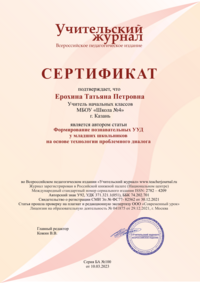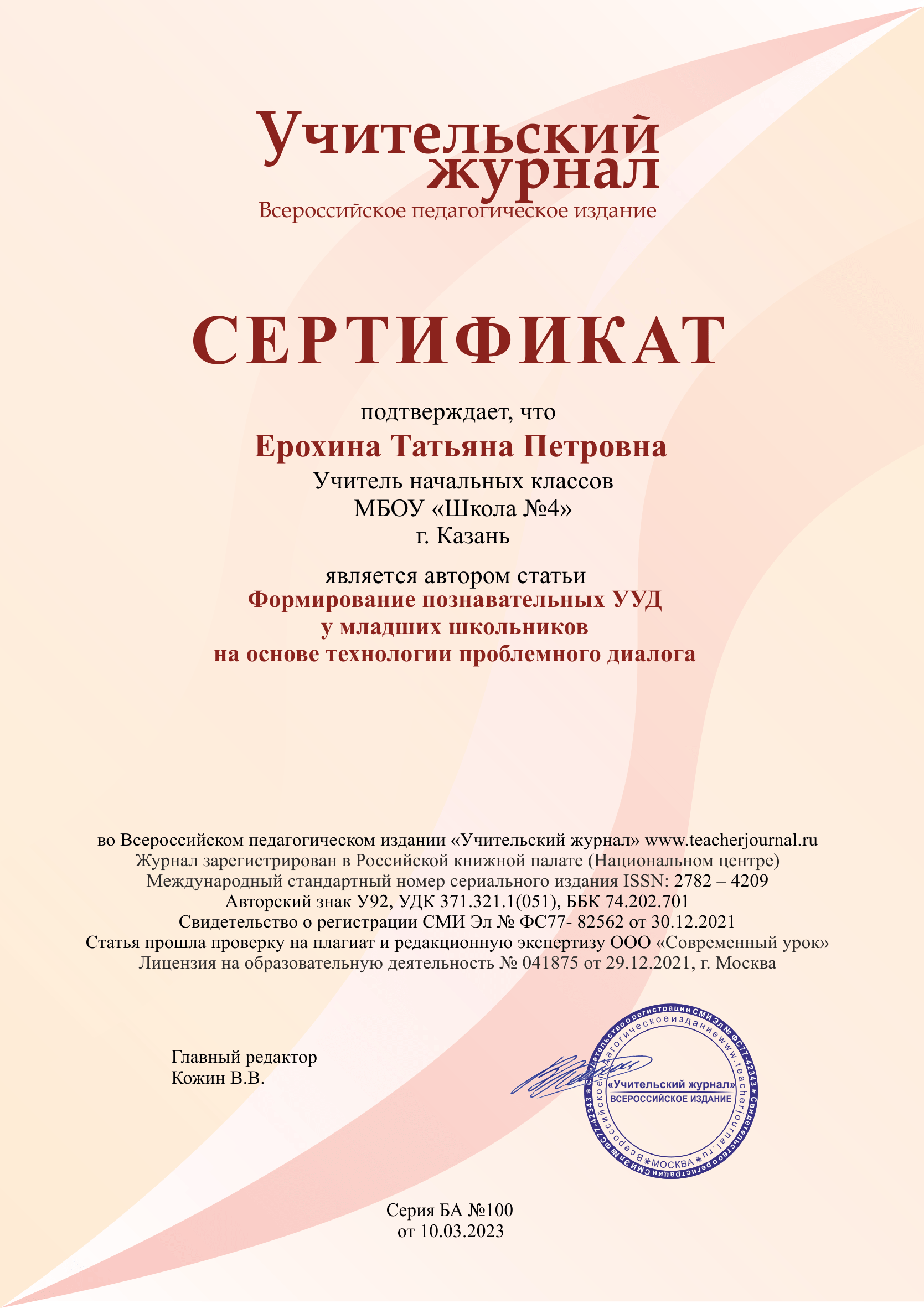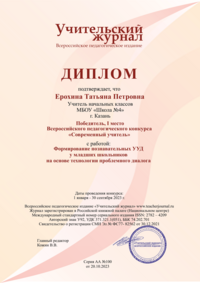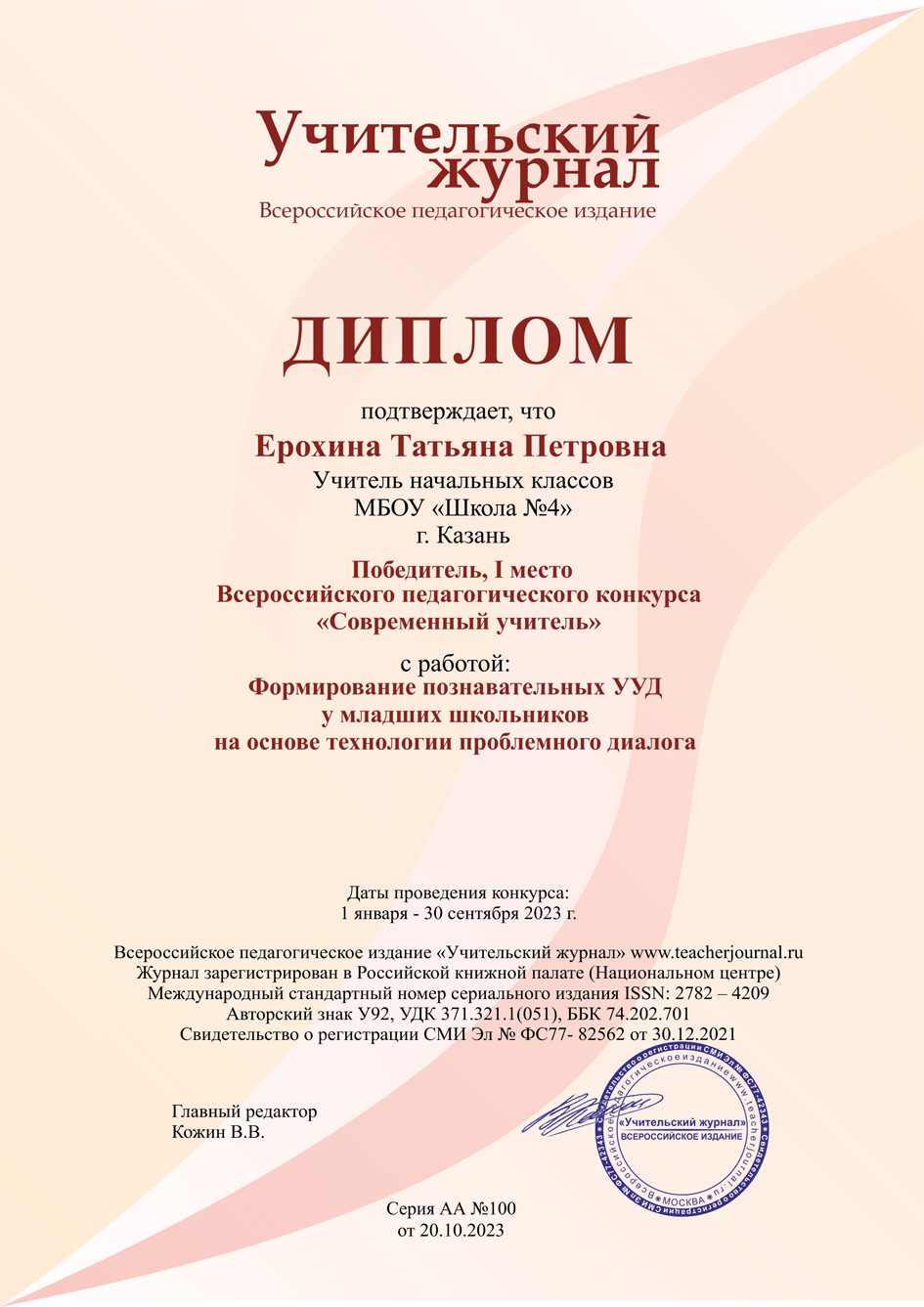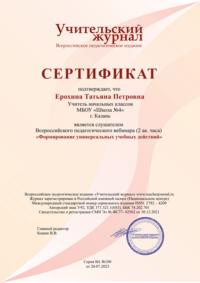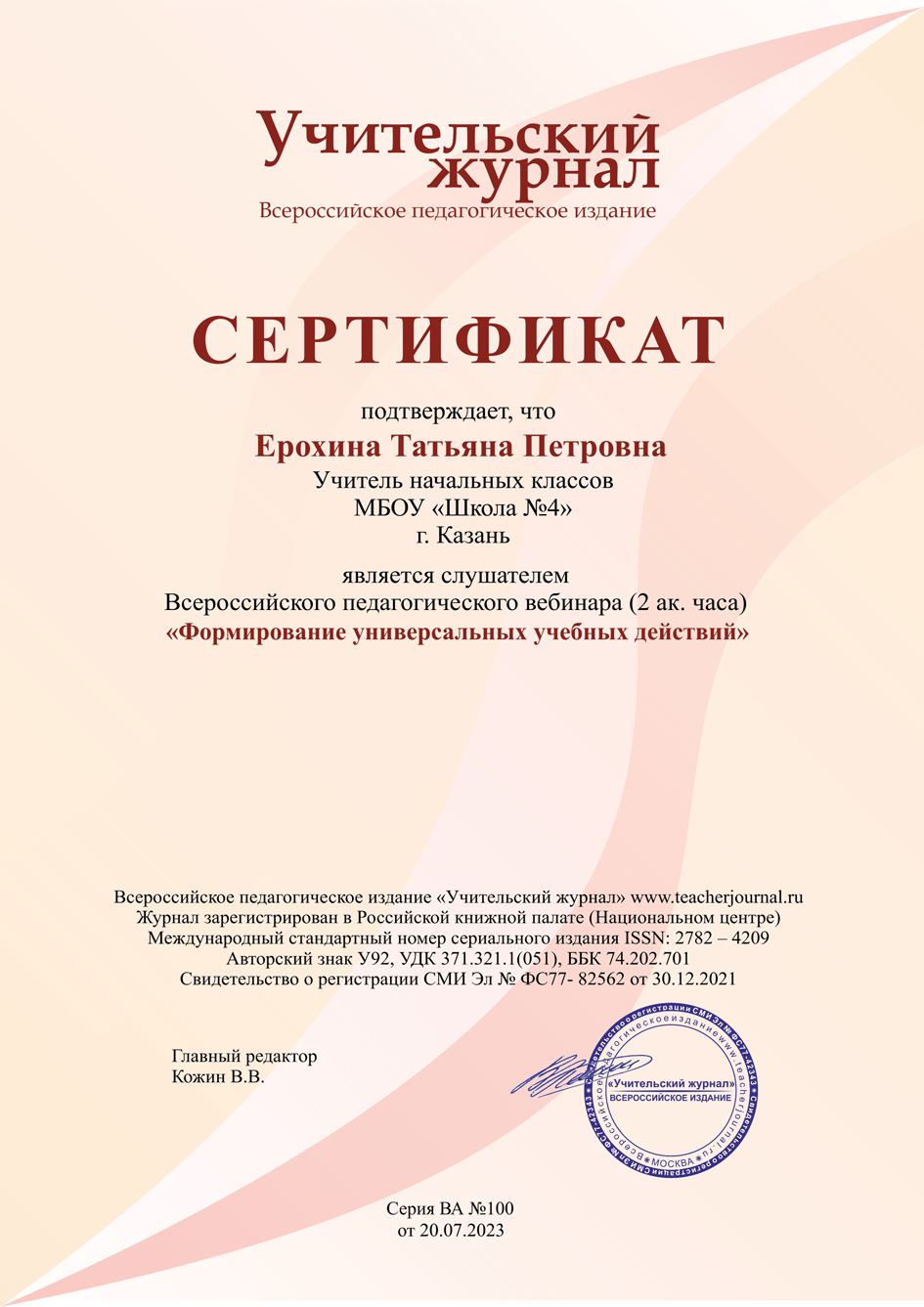План урока английского языка: «В мире профессий» («In the World of Professions»)
Автор: Сафарян Сона Робертовна
Организация: Гимназия РУТ(МИИТ)
Населенный пункт: г. Москва
План урока английского языка
Презентация в PowerPoint, файл: demonstration1.ppsx
Класс: старшая школа (10–11 класс)
Продолжительность: 45–50 минут
Цели урока:
- Исследовать связь между выбором профессии, стратегиями продуктивности и трендами на рынке труда;
- Развивать критическое мышление, аудирование и разговорные навыки через интерактивные задания;
- Стимулировать креативность и работу в команде.
Структура урока
1. Разминка: Конфуций и философия «Съешь лягушку» (5-7 мин.)
Слайд 1–2:
Приветствие и вовлечение:
- Учитель: «Добрый день! Сегодня мы поговорим о карьере, прокрастинации и профессиях будущего. Наблюдатели, спасибо, что с нами!».
- Цитата Конфуция: «Выбери работу по душе…».
- Парное обсуждение (1 мин): «Как вы понимаете эти слова? Реалистично ли это?».
- Обмен мнениями: Краткие ответы + шутка («Конфуцию не приходилось отправлять резюме!»).
Слайд 3–4:
Знакомство с концепцией «Съешь лягушку»:
- «Что, если я скажу, что «съесть лягушку» — это секрет продуктивности?»
- Объяснение идеи Марка Твена/Брайана Трейси (сначала делаем самое сложное).
- Чтение: Ученики читают текст (Слайд 4) и отвечают на вопросы (индивидуально/в парах).
- Проверка: Обсуждение ответов (акцент на применении в жизни).
2. Интерактив: «Найди свою лягушку» (10-12 мин.)
Цель: Применить стратегии продуктивности к профессиям мечты.
Этапы:
- Мозговой штурм: Ученики составляют список 3–5 задач для их идеальной работы (например, врач: бумажная работа, ночные смены).
- Определение «лягушки»: Выделяют самое неприятное задание.
- Обсуждение в парах: «Как выполнение «лягушки» первым делом улучшит продуктивность?».
- Обмен идеями: 2–3 примера. Связь с Конфуцием — «Любить работу = уметь преодолевать трудности!».
Переход: «Теперь послушаем, как кандидаты ведут себя на собеседованиях!»
3. Аудирование: Собеседования на работу (8-10 мин.)
Слайд 5:
- Задание: Прослушать 3 аудиофрагмента (например, Focus 4, 5.2).
- Обсуждение: «Вы бы наняли этого человека? Почему да/нет?»
- Акцент: Язык тела, ясность ответов, уверенность.
4. Говорение: Дебаты «Профессии будущего» (12–15 мин.)
Слайд 6–7:
Задание 1: Распределить профессии из списка по категориям (А/В/С). Например:
- А — всегда будут нужны (учитель);
- В — под угрозой (фабричный рабочий);
- С — профессии будущего (гид в космосе);
- Добавить по 3 своих примера в каждую категорию.
Задание 2: В группах обсудить:
- Какие профессии устойчивы, а какие исчезнут?
- Плюсы/минусы удалённой работы?
- Какие навыки нужны для будущего?
- Дополнительно: Мини-дебаты «Заменит ли ИИ учителей?»
5. Завершение и рефлексия (3–5 мин)
- Выходной билет: «Напишите свою «лягушку» на неделю и как вы её «съедите»."
- Финальная мысль: «Будь вы космическим гидом или юристом — умейте побеждать трудности, любите своё дело и оставайтесь любознательными!»
Ключевые аспекты урока, способствующие достижению образовательных целей:
- Интерактивные методы обучения – сочетание парной, групповой работы и дебатов для максимального вовлечения учащихся.
- Развитие метапредметных навыков – критическое мышление, анализ, аргументация, что соответствует современным ФГОС.
- Использование цифровых технологий – мультимедийная презентация, аудиоматериалы для развития аудитивных навыков.
- Практико-ориентированный подход – связь темы с реальной жизнью и будущей профессиональной деятельностью учащихся.
- Креативность и нестандартный формат – игровые элементы, философская дискуссия, что повышает мотивацию и запоминаемость материала.
Материалы:
- Распечатанные описания профессий.
- Аудиозаписи собеседований.
- Таймер для игр.
- Линейка «Focus»
План урока на английском языке
Lesson Plan:
“In the World of Professions”
Grade Level: Senior High School (10th–11th grade)
Lesson Duration: 45–50 minutes
Objective:
- Explore the connection between career choices, productivity strategies, and future job trends.
- Develop critical thinking, listening, and speaking skills through interactive tasks.
- Foster creativity and teamwork.
Lesson Structure
1. Warm-Up: Confucius & the "Frog" Philosophy (5–6 min)
Slide 1–2:
Greeting & Hook:
- Teacher: "Good afternoon! Today, we’re tackling careers, procrastination, and futuristic jobs. Observers, thank you for joining!"
- Display Confucius’ quote: "Choose a job you love…"
- Pair Discussion (1 min): "What does this mean? Is it realistic?"
- Class Share: Quick responses + humorous twist ("Confucius never had to send a CV!").
Slide 3–4:
Introduce "Eat That Frog" Concept:
- "What if I told you ‘eating a frog’ is the key to productivity?"
- Briefly explain Mark Twain/Brian Tracy’s idea (hardest task first).
- Reading Task: Students read the summary (Slide 4) and answer questions (individually/pairs).
- Key Check: Discuss answers (focus on real-world application).
2. Interactive Activity: "Find Your Frog" (10–12 min)
Goal: Apply productivity strategies to dream jobs.
Steps:
- Brainstorm: Students list 3–5 tasks for their dream job (e.g., surgeon: paperwork, long shifts).
- Identify "Frogs": Highlight the most dreaded task for each job.
- Pair Discussion: "How would tackling the ‘frog’ first improve productivity?"
- Class Share: 2–3 examples. Link back to Confucius—"Loving your job means mastering challenges!"
Transition: "Now, let’s hear how real job candidates handle pressure!"
3. Listening: Job Interview Scenarios (8–10 min)
Slide 5:
- Task: Play 3 job interview clips (e.g., Focus 4, 5.2).
- Discussion: "Would you hire them? Why/why not?"
- Skill Focus: Body language, clarity, confidence.
4. Speaking: "Jobs of the Future" Debate (12–15 min)
Slide 6–7:
- Activity 1: Categorize jobs (A/B/C) from the list (e.g., "robot mechanic" = future job). Add 3 more jobs per category.
-
Activity 2: Group discussion:
- Which jobs are ‘safe’ or at risk?
- Pros/cons of remote work?
- Skills needed for future careers?
- Extension: "Will AI replace teachers? Debate!" (Spark quick arguments).
5. Wrap-Up & Reflection (3–5 min)
- Exit Ticket: "Write your ‘frog’ for this week and how you’ll ‘eat it.’"
- Final Thought: "Whether you’re a future space guide or lawyer, remember: conquer frogs, love your work, and stay curious!"
Key Aspects of the Lesson Contributing to Educational Goals:
- Interactive Teaching Methods – A combination of pair work, group activities, and debates to maximize student engagement.
- Development of Metacognitive Skills – Critical thinking, analysis, and argumentation, aligned with modern educational standards (FGOS).
- Use of Digital Technologies – Multimedia presentations and audio materials to enhance listening skills.
- Practice-Oriented Approach – Connecting the topic to real-life situations and students’ future careers.
- Creativity and Non-Standard Format – Gamification, philosophical discussion, and memorable content to boost motivation.
Materials Needed:
- Printed job descriptions for wall activity.
- Audio clips of interviews.
- Timer for games.
- Focus, Student book
Этапы учебного занятия
Stages of the Lesson
Slide 1
"Good afternoon, everyone! Welcome to today’s lesson. To our wonderful observers, thank you for joining us—we’re excited to share our exploration of ‘In the World of Professions' with you.
Slide 2
Let’s start with a thought from Confucius, the great Chinese philosopher. He once said: ‘Choose a job you love, and you will never have to work a day in your life.’ Ask the class: What do you think Confucius meant by this? Take 1 minute to discuss with your neighbour.
(After brief sharing):
Today, we’ll dive into how careers shape our lives, explore diverse professions, and maybe even discover what ‘work’ means to you. Let’s begin!" Why This Works: Add humour: “Confucius never had to worry about resumes or Zoom interviews, but his advice still matters!”
Personalize:
“Raise your hand if you’ve ever heard someone say, ‘Do what you love’—is that realistic?”
Slide 3
Introduce the Article Title: "Eat That Frog" Transition Statement: “Today’s lesson ties Confucius’ wisdom to a surprising idea: “Eat That Frog.” What could eating a frog possibly teach us about jobs and productivity?” (Pause for reactions – humour and curiosity will engage them.) Then read a summary of some tips from a book called “Eat that Frog!” by Brian Tracy and check your answers.
Slide 4
(Give them the text) Read the summary and answer the questions:
- What is a ‘frog’ in the summary? What does ‘eat that frog’ mean?
- How can making lists help you at work? What two lists does the author suggest?
- Why should you imitate what other successful people do?
- Why is developing your skills important?
Keys:
- It’s the most difficult or important task and it means you should do it first.
- It can help you focus, increase output and save time. He suggests a list of goals and a to-do list.
- By imitating their behaviour you adopt good habits and become successful too.
- The more skilled you become, the faster you work.
Explanation:
The phrase comes from Mark Twain: “If it’s your job to eat a frog, do it first thing in the morning. If you have to eat two frogs, eat the biggest one first.” Author Brian Tracy later popularized it as a productivity strategy: Tackle your hardest, most important task first (your “frog”) to gain momentum and reduce procrastination. Connection to Professions: “Even in a career you love, there are “frogs” – tasks you dread but can’t avoid. Learning to “eat the frog” helps you stay effective and focused, so you can spend more time on what inspires you.”
Interactive Activity:
“Find Your Frog” Goal: Help students apply the concept to real-life scenarios. Steps: Brainstorm: Ask students to list 3-5 common tasks in their dream job (e.g., a teacher grading papers, a chef prepping ingredients, a programmer debugging code). Identify Frogs: For each job, have them identify the “frog” (the task most likely to cause procrastination). Strategize: In pairs, students discuss: How would “eating the frog” improve productivity? What rewards follow? Wrap-Up: Share examples as a class and highlight how prioritizing tough tasks aligns with Confucius’ idea of loving your work – by mastering challenges, you create space for fulfillment.
Slide 4
Alright, everyone! Let’s switch gears and practice our listening skills. Are you ready? (Focus 4) Listen to 3 people in job interview situations. Would you employ them? (Focus 4 (5.2)
Transition to Next Segment End with: “Now that we’ve learned to “eat our frogs,” let’s explore how different professions tackle their biggest challenges – and what frogs you might encounter in your future careers!” This connects smoothly to deeper exploration of professions or a lesson on time management. “Thank you for those thoughtful ideas! Now, let’s put Confucius’ advice into action by exploring the diversity of careers out there. Say to the class: Now, let’s test your detective skills. Around the room, you’ll find 16 job descriptions pinned to the walls. Each group will get a set of job description cards. Your mission: Read the descriptions carefully. Match the correct job title to each description. Stick your title card next to the right description. You have 5 minutes—and the fastest team with the most correct matches wins a small prize! Ready? Let’s move!”
SPEAKING Discuss which category A–C each job in the box belongs to. Think of three more jobs for each category. actor A artist A body-part maker C dentist A factory worker B fire fighter A lawyer A office worker politician A robot mechanic C shop assistant B teacher solar panel engineer A space tourist guide C wind turbine technician A writer A jobs that will always be needed B jobs that are at risk C jobs of the future
Slide 5
- SPEAKING Discuss the questions about the future of work. 1.What other jobs or careers do you think are stable? Which ones are at risk? 2.What are the advantages of working from home compared to commuting to work? 3.What kind of qualifications and skills do you think you’ll need for the future?
- Extension: "Will AI replace teachers? Debate!" (Spark quick arguments).
Wrap-Up & Reflection (3–5 min)
- Exit Ticket: "Write your ‘frog’ for this week and how you’ll ‘eat it.’"
- Final Thought: "Whether you’re a future space guide or lawyer, remember: conquer frogs, love your work, and stay curious!"


